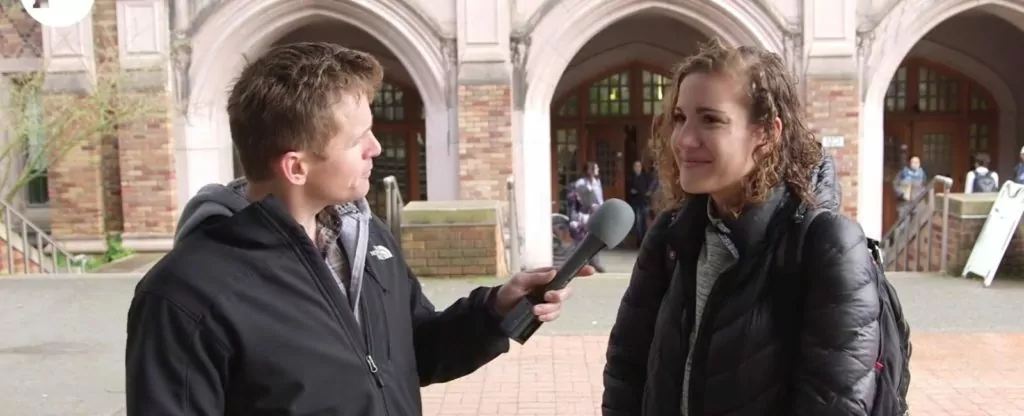The Berlin Wall fell in 1989 and many thought that Communism was over and done with. But even today its influence can still be felt, and as far more than an economic system. Communist and Marxist thought has shaped our culture.
How so? Well, consider how the far left has long desired to overthrow the traditional concept of the family. Already in 1848, one of the planks of the Communist Manifesto called explicitly for the abolition of the family.
Abolition of the family! Even the most radical flare up at this infamous proposal of the Communists. [However] on what foundation is the present family, the bourgeois family, based? On capital, on private gain.
Karl Marx divided the work into two classes: the ruling “bourgeois” class, and a servant “proletariat” class. The Communist Manifesto used this same terminology and claimed that:
In its completely developed form, this family exists only among the bourgeoisie. But this state of things finds its complement in the practical absence of the family among the proletarians, and in public prostitution. The bourgeois family will vanish as a matter of course when its complement vanishes, and both will vanish with the vanishing of capital.
The Communists were saying that a family made up of mom and dad and gaggle of kids is an elitist notion, and when the elites are taken down, this type of family will disappear too, to be replaced by the communal education and raising of children.
The evolution of left-wing thought on how to destroy the family is chronicled by Paul Kengor, a professor of political science at Grove City College in Pennsylvania. His book Takedown: From Communists to Progressives, How the Left Has Sabotaged Family and Marriage shows that the left originally saw heterosexual sexual freedom as the channel for undermining the family, and only came to accept homosexuality as a key plank later on.
Russian Communism
The Communism of Karl Marx and Vladimir Lenin viewed the traditional family as an oppressive capitalist institution that exploited women. They saw women as being confined to their homes taking care of children, while the men had jobs earning money. It was their view that under the capitalist system women were dependent on their husbands for survival and were stuck in their marriages as virtual slaves.
The Communists had a solution. All children would be raised in government daycares and women could go to work in the factories. With such jobs, women would be financially independent of men and also free from the drudgery of taking care of children. They would be truly liberated from their bondage to man and child, since children would be raised by the state.
As part of their “liberating” program, when the Communists took over in Russia, they removed the Russian Orthodox Church’s prohibition against divorce. A large number of divorces quickly ensued. Kengor notes, “The divorce rate skyrocketed to levels unseen in human history.”
Besides making divorce easy, the new Communist government made obtaining abortions easy as well. The abortion rate skyrocketed just like the divorce rate. But after a few years it became apparent that the long-term stability of the Russian population was thus threatened. According to Kengor, “The toll was so staggering that an appalled Joseph Stalin, the mass murderer, actually banned abortion in 1936, fearing a vanishing populace.” He also banned homosexuality in 1934.
Stalin’s abortion ban was lifted after he died and the Russian abortion rate quickly rose again.
“By the 1970s, the Soviet Union was averaging 7 to 8 million abortions per year, annihilating whole future generations of Russian children. (America, with a similar population, averaged nearer 1.5 million abortions per year after Roe was approved in 1973.)”
Communism USA
The desire to abolish the family was embraced by Communists everywhere. In the United States, for example, many Communist Party members lived lifestyles that reflected their hostility towards the traditional family. Frequently this manifested itself in sexual promiscuity. Divorce and libertine views of sexuality were common among the Communists at a time when American society frowned on both.
One of the earliest founders of the American Communist movement was John Reed. He is still a popular figure on the American left, and a laudatory 1981 movie about him called Reds was nominated for Best Picture. He lived a lifestyle in keeping with his anti-family beliefs:
“The Communist cad and philanderer hopped from bed to bed, woman to woman, torpedoed marriage after marriage, and disseminated the venereal disease that made him urinate red and left at least one of his temporary girlfriends with inflamed ovaries requiring surgical removal.”
The sexual promiscuity of most American Communists, however, was heterosexual because the Communist Party considered homosexuality to be bad.
The new Communists
This negative attitude towards homosexuality by Communists began to change due to the development of a related school of thought called the Frankfurt School. Originally known as the Institute for Social Research, it began work at the University of Frankfurt, Germany in the early 1920s. However, since many of the intellectuals involved were Jewish, they left Germany to set up at Columbia University in New York after Adolf Hitler came to power in the 1930s.
The Frankfurt School intellectuals were Marxists who realized that Marx’s original prediction (that workers would revolt against capitalist society and create a socialist utopia) was not working. They developed a new or neo-Marxist theory that focused on cultural factors rather than economic factors as the key to revolution. As Kengor puts it,
“The Frankfurt School protégés were neo-Marxists, a new kind of twentieth-century communist less interested in the economic/class-redistribution ideas of Marx than a remaking of society through the eradication of traditional norms and institutions.”
The key to revolution, in this view, was the destruction of traditional Christian morality. Christian morality repressed people’s natural sexual appetites, and only by liberating sexuality from such moral constraints could people be truly set free.
“The hard fact for these Communists was that at the core of Western civilization was a pesky morality derived from the Old and New Testaments, from the traditional family, and from tradition itself, an embedded understanding that freedom was not the license to do anything a person wanted, and the realization that one’s passions needed to be occasionally checked.”
The change in emphasis from economics to culture also changed the focus on who was most important to reach with the new message. Early Communists focused on organizing the working class against business owners, but they were no longer relevant. Kengor writes, “Marx and Engels had organized the workers in the factories; the neo-Marxists would organize the professors and students in the universities.”
Communists on campus
Wilhelm Reich was one of the key intellectuals of the Frankfurt School. He was the person who invented the phrase “sexual revolution.” Prominent periodicals labeled him the “Father of the Sexual Revolution,” although he shares that title with infamous sex researcher Alfred Kinsey of Indiana University.
Reich considered the traditional family, especially its patriarchal authority, as the chief source of repression in society. “For Reich, full communist revolution required full sexual license, including homosexual sex.”
Another key Frankfurt School intellectual was Herbert Marcuse. Marcuse’s book Eros and Civilization: A Philosophical Inquiry into Freud is considered by some to be “the Bible of the New Left movement.”
Kengor summarizes the thought of Reich and Marcuse this way:
“Both comrades-in-arms battled the ‘repression’ represented by traditional notions of morality, especially cumbersome sexual restraints. They felt that erotic desires needed to be unleashed rather than inhibited. Both men saw religion as repressive, though Marcuse went further, arguing that modern Judeo-Christian society had become ‘totalitarian’ in its suppression of man’s ‘natural’ sexual instincts.”
Herbert Marcuse was very popular among university students in the 1960s and 1970s and his influence extended neo-Marxist thinking into segments of Western culture. In particular, leading feminist theorists of the 1960s and 1970s were imbued with Frankfurt School ideology, and feminism also considers the patriarchal family to be the main oppressive institution of modern society.
The homosexual rights movement also fits naturally with the view that traditional Christian morality is repressive. Kengor writes, “The Frankfurt School cadre sought to reshape cultural views of sexuality via education, and… they have succeeded and continue to make astonishing progress.”
Conclusion
While many other groups have built on, borrowed from, and extended the family-undermining work of the Communists, their influence shouldn’t be overlooked.
So how can we combat the cultural decay that these neo-Marxists and others have fostered? Well, we can sing the praises of the traditional family. Numerous academic studies have demonstrated that the ideal environment for a child to grow up in is a traditional family. Kengor writes,
“Research has confirmed time and time again that the best situation for a child is a two-parent home with a mother and a father, which should always be the goal of any culture or polity.”
However, as Kengor shares, “Nothing short of a major religious revival will save [us].” Political parties or leaders cannot bring back Christian morality to any of the Western countries. It appears that only a widespread repentance and return to God can restore the traditional family model in the West.











